第98章 V(11)
"When I first went to live with Dr. Holyoke," he says, "in 1797, showing me his shop, he said, 'There seems to you to be a great variety of medicines here, and that it will take you long to get acquainted with them, but most of them are unimportant. There are four which are equal to all the rest, namely, Mercury, Antimony, Bark and Opium.'" And Dr. Jackson adds, "I can only say of his practice, the longer I have lived, I have thought better and better of it."
When he thought it necessary to give medicine, he gave it in earnest.
He hated half-practice--giving a little of this or that, so as to be able to say that one had done something, in case a consultation was held, or a still more ominous event occurred. He would give opium, for instance, as boldly as the late Dr. Fisher of Beverly, but he followed the aphorism of the Father of Medicine, and kept extreme remedies for extreme cases.
When it came to the "non-naturals," as he would sometimes call them, after the old physicians,--namely, air, meat and drink, sleep and watching, motion and rest, the retentions and excretions, and the affections of the mind,--he was, as I have said, of the school of sensible practitioners, in distinction from that vast community of quacks, with or without the diploma, who think the chief end of man is to support apothecaries, and are never easy until they can get every patient upon a regular course of something nasty or noxious.
Nobody was so precise in his directions about diet, air, and exercise, as Dr. Jackson. He had the same dislike to the a peu pres, the about so much, about so often, about so long, which I afterwards found among the punctilious adherents of the numerical system at La Pitie.
He used to insist on one small point with a certain philological precision, namely, the true meaning of the word "cure." He would have it that to cure a patient was simply to care for him. I refer to it as showing what his idea was of the relation of the physician to the patient. It was indeed to care for him, as if his life were bound up in him, to watch his incomings and outgoings, to stand guard at every avenue that disease might enter, to leave nothing to chance; not merely to throw a few pills and powders into one pan of the scales of Fate, while Death the skeleton was seated in the other, but to lean with his whole weight on the side of life, and shift the balance in its favor if it lay in human power to do it. Such devotion as this is only to be looked for in the man who gives himself wholly up to the business of healing, who considers Medicine itself a Science, or if not a science, is willing to follow it as an art,--the noblest of arts, which the gods and demigods of ancient religions did not disdain to practise and to teach.
The same zeal made him always ready to listen to any new suggestion which promised to be useful, at a period of life when many men find it hard to learn new methods and accept new doctrines. Few of his generation became so accomplished as he in the arts of direct exploration; coming straight from the Parisian experts, I have examined many patients with him, and have had frequent opportunities of observing his skill in percussion and auscultation.
One element in his success, a trivial one compared with others, but not to be despised, was his punctuality. He always carried two watches,--I doubt if he told why, any more than Dr. Johnson told what he did with the orange-peel,--but probably with reference to this virtue. He was as much to be depended upon at the appointed time as the solstice or the equinox. There was another point I have heard him speak of as an important rule with him; to come at the hour when he was expected; if he had made his visit for several days successively at ten o'clock, for instance, not to put it off, if be could possibly help it, until eleven, and so keep a nervous patient and an anxious family waiting for him through a long, weary hour.
If I should attempt to characterize his teaching, I should say that while it conveyed the best results of his sagacious and extended observation, it was singularly modest, cautious, simple, sincere.